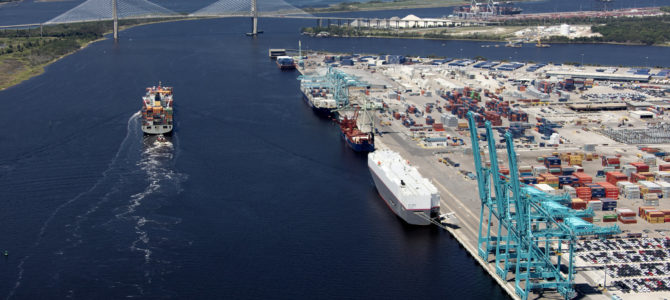
Why do conservatives oppose the Export-Import Bank? Because the economy grows faster when markets rather than politicians determine where labor and capital go.
Why do conservatives oppose ethanol subsidies? Because the economy grows faster when markets rather than politicians determine where labor and capital go.
Why do conservatives want to abolish the Department of Housing and Urban Development? Because the economy grows faster when markets rather than politicians determine where labor and capital go.
That’s also the answer if the question is about tax reform, the postal monopoly, school choice, health care, bailouts, minimum wages, and myriad other issues. Simply stated, government intervention is a recipe for cronyism, corruption, and inefficiency. It’s no coincidence that market-oriented jurisdictions such as Hong Kong are so much more prosperous than state-driven nations such as Greece.
This appreciation of markets explains why conservatives should be in the forefront of the battle to defend free trade. We understand it would be wrong to let politicians interfere with our freedom to trade with our local grocery store. We also understand it would be a mistake to allow politicians to hinder our liberty to trade with people in neighboring states. The same argument applies when looking at our trade with people in other nations.
Here are seven simple things to understand about trade.
1. Voluntary Trade Is a De Facto Good
The capitalist system, based on competition and trade, is defined by voluntary exchange. There is no need for “balance” between participants. We all have trade deficits with our local gas stations. We’re always buying from them, but they never buy from us. Is that bad? Of course not. We’re freely engaging in transactions that, by definition, only occur because we both benefit. The same is true with trade across borders.
2. A ‘Trade Deficit’ Means a ‘Capital Surplus’
Nations don’t trade, people do. So when people in one nation buy goods from people in another nation, the money doesn’t disappear. It’s either used to buy goods in return, or it is used for investments.
Foreigners have placed trillions of dollars in America’s financial markets, in large part because the United States is viewed as strong and prosperous. This “capital surplus” boosts prosperity and should be celebrated, not bemoaned.
3. Protectionism Corrupts Markets
Many people unfortunately equate capitalism with big business. This is very unfortunate because large companies are the ones with the power and money to manipulate the political process in order to obtain unearned profits. Trade barriers are not the only way such firms interfere with genuine free markets, but they contribute to the perception that capitalism is merely a system for the benefit of the rich and powerful.
4. Trade Barriers Reduce Jobs and Growth
The great 19th-century French economist Frederic Bastiat observed that a good economist is one who looks at indirect effects—the “unseen” compared to the “seen.” It’s easy to identify jobs that have been “saved” because of protectionism, but it’s not easy to calculate the greater number of jobs that are lost because of higher prices, lost purchasing power, enforced inefficiency, and lost competitiveness.
5. Creative Destruction Is Painful But Beneficial
Trade causes pain, but not because goods cross borders. Far more jobs are lost because of domestic trade than because of international trade. Just think of the effects of the automobile on the horse-and-buggy industry, or the impact of streaming services on video rental outlets. These changes, including ones driven by cross-border trade, are painful for some people, but we all wind up much richer if markets are allowed to function and create wealth.
6. Tariffs Didn’t Create Growth in the 1800s
It is true that the United States became a rich nation in the 1800s, when tariffs were a major source of government revenue. But the growth of the 1800s wasn’t because of trade barriers. This was an era before the welfare state. Government was very small and there were no income taxes. There was no regulatory state. Those were the policies that helped make America an economic powerhouse.
7. Protectionist Nations Lag Free-Trade Jurisdictions
Economists have plenty of studies showing that international trade is a win-win for all parties, but sometimes it’s easier for people to learn from real-world examples. Hong Kong and Singapore are the two jurisdictions with the world’s lowest trade barriers. Is it any coincidence that they have become rich and prosperous? And is it a surprise that India, the world’s most protectionist major nation, continues to lag behind?
There are many other real-world examples. The United States and the rest of the world suffered greatly during the protectionist era of the 1930s. Nations such as Argentina went from being rich to poor in large part because of protectionist “import-substitution” policies. And countries like New Zealand enjoyed a renaissance after dismantling trade barriers.
A very common argument against free trade is that we need barriers to punish nations that impose restrictions on our goods and services. But that merely exacerbates protectionism’s negative effects. Countries that have practiced unilateral free trade have greatly prospered. Their consumers and domestic industries benefit from lower costs and greater efficiency.
To be sure, if politicians genuinely used the cudgel of protectionism to cajole other nations to lower trade barriers, that would be a win-win scenario. Unfortunately, if the revised North American Free Trade Agreement is any indication, that doesn’t seem to be the Trump administration’s goal.









